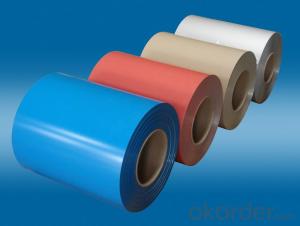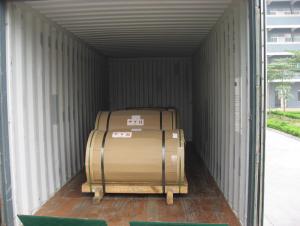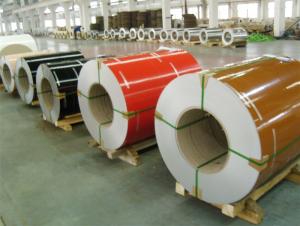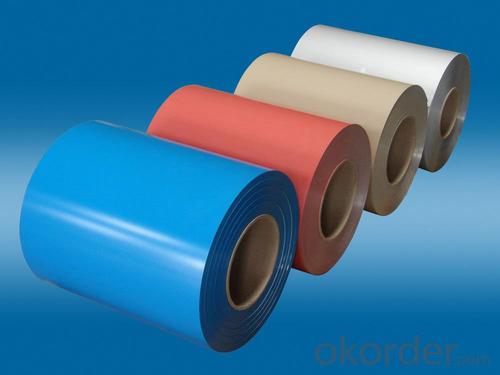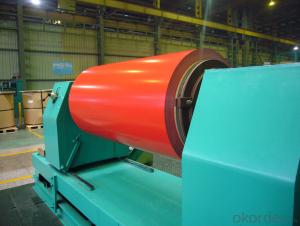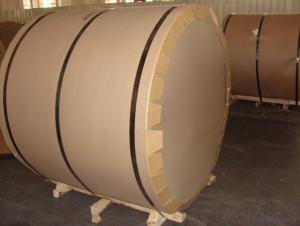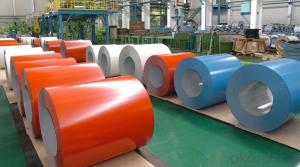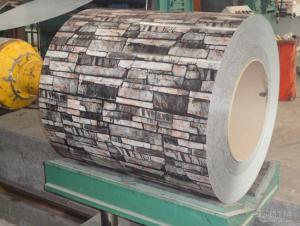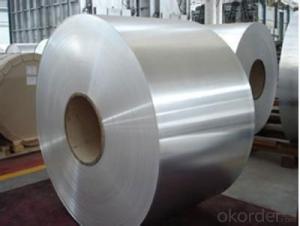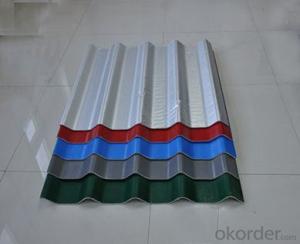Aluminum Coil for Channel Letters - Coated Aluminum Coils AA1xxx
- Loading Port:
- China Main Port
- Payment Terms:
- TT or LC
- Min Order Qty:
- 5 m.t.
- Supply Capability:
- 100000 m.t./month
OKorder Service Pledge
OKorder Financial Service
You Might Also Like
1.Structure of Coated Aluminum Coils AA1xxx Description
Coated Aluminum Coils AA1xxx are of a wide range of colors, which give wonderful appearance no matter in residential and commercial constructions or great exhibition centers.
Coated Aluminum Coils AA1xxx have been widely used in the fields of construction and decoration, electronic applications, lighting decoration, air-condition air pipes, sandwich panels and drainages etc.
2.Main Features of Coated Aluminum Coils AA1xxx
• Superior quality of raw material
• Reasonable and stable chemical composition
• Accurate tolerance
• Goode mechanical property
3.Coated Aluminum Coils AA1xxx Images
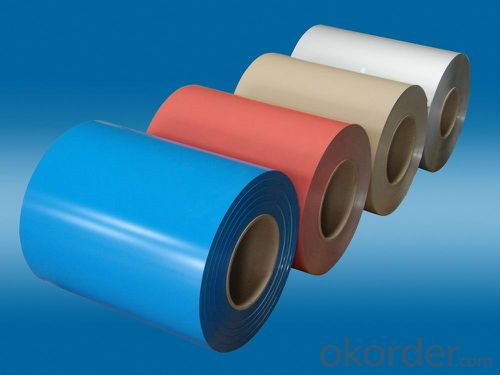
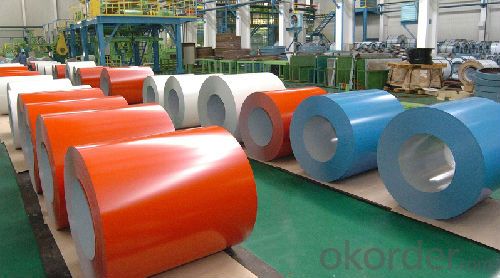
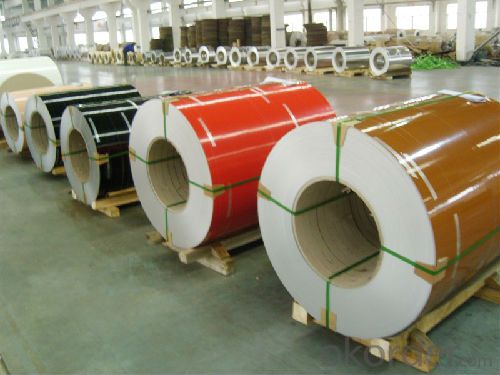
4.Coated Aluminum Coils AA1xxx Specification
Alloy | AA1xxx (AA1050, AA1100 etc.) |
Temper | H14, H16, H18, O/F |
Thickness | 0.2mm -- 100mm |
Width | 30mm -- 1700mm |
Standard | GB/T 3880-2006,EN,JIS |
5. FAQ of Coated Aluminum Coils AA1xxx
A. Where is your mill located?
In Zhejiang Province, China.
B. What is the terms of payment.
L/C ( at sight, 30/60/90 days from B/L date), TT payment.
- Q: Are aluminum coils suitable for architectural applications?
- Yes, aluminum coils are suitable for architectural applications. Aluminum is a highly versatile and durable material that is commonly used in the construction industry for various architectural applications. Aluminum coils offer several advantages for architectural use, including their lightweight nature, corrosion resistance, and ability to be easily formed into desired shapes and sizes. These coils can be used in architectural applications such as roofing, cladding, facades, and gutters, among others. Additionally, aluminum coils can be coated with different finishes, providing a wide range of aesthetic options for architects and designers. Overall, aluminum coils are an excellent choice for architectural applications due to their strength, durability, and flexibility.
- Q: 1mm how much is one square meter for aluminum rolls?
- The price of aluminum sheet is calculated according to the price of aluminum ingot + processing fee (aluminum plate state), and the specific price is also different according to the size and size of aluminum sheet.
- Q: What are the safety measures one should take when using aluminum coils indoors?
- <p>When using aluminum coils indoors, it's crucial to ensure proper ventilation to prevent the buildup of gases that can be harmful if inhaled in large quantities. Always follow the manufacturer's guidelines for installation and operation. Keep the coils away from flammable materials and ensure they are securely fastened to prevent tipping or falling. Regularly inspect the coils for any signs of damage or wear, and replace them if necessary. Never use aluminum coils in enclosed spaces without proper exhaust systems, and always have a fire extinguisher nearby in case of emergencies.</p>
- Q: Can aluminum coils be welded or joined together?
- Yes, aluminum coils can be welded or joined together using various methods such as TIG (Tungsten Inert Gas) welding, MIG (Metal Inert Gas) welding, or using specialized aluminum welding techniques.
- Q: Are aluminum coils suitable for marine environments?
- Yes, aluminum coils are suitable for marine environments. Aluminum has excellent corrosion resistance properties, making it a popular choice for marine applications. It forms a protective oxide layer that prevents further corrosion, making it ideal for withstanding the harsh saltwater and humid conditions found in marine environments. Additionally, aluminum coils are lightweight, durable, and easy to maintain, making them a reliable option for marine applications.
- Q: Is it okay to combine copper with aluminum in case of minting or coin making? Thanks :)
- i think its fine
- Q: Are there any restrictions on the coil length of aluminum coils?
- Yes, there are restrictions on the coil length of aluminum coils. The coil length is limited by factors such as the manufacturing process, transportation constraints, and handling capabilities. These restrictions ensure that the coils can be efficiently produced, transported, and utilized in various applications.
- Q: Can the 5-10cm thick paper sleeve inside the scrapped aluminum coil be sliced? Now we use knife which is much troublesome.
- You can use Long Men Rolling Mill to slice directly.
- Q: Are aluminum coils suitable for construction applications?
- Yes, aluminum coils are suitable for construction applications. They are lightweight, durable, and corrosion-resistant, making them an ideal choice for various construction purposes such as roofing, siding, and insulation. Additionally, aluminum coils can be easily formed and shaped, providing flexibility in design and installation.
- Q: How do aluminum coils compare to plastic coils in terms of durability?
- When it comes to durability, aluminum coils outperform plastic coils. Aluminum is renowned for its strength and ability to resist wear and tear, making it a highly durable material. It can withstand heavy usage without cracking, breaking, or deforming under pressure. In contrast, plastic coils are more susceptible to damage, particularly with repetitive use or extreme temperatures. Although plastic coils may be cost-effective and lightweight, they may not maintain their quality over time. Consequently, for those prioritizing durability, aluminum coils are the superior option due to their longer lifespan and increased resistance to damage.
Send your message to us
Aluminum Coil for Channel Letters - Coated Aluminum Coils AA1xxx
- Loading Port:
- China Main Port
- Payment Terms:
- TT or LC
- Min Order Qty:
- 5 m.t.
- Supply Capability:
- 100000 m.t./month
OKorder Service Pledge
OKorder Financial Service
Similar products
Hot products
Hot Searches
Related keywords
